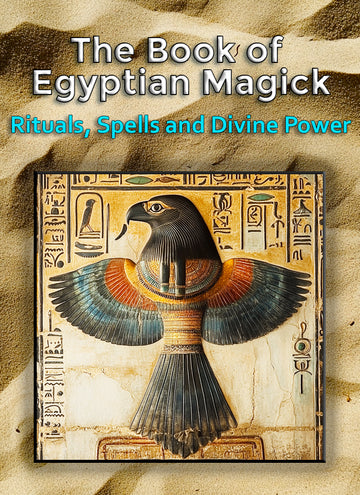Heka: The Sacred Power of the Word and the Divine Will
Share
Heka: The Sacred Power of the Word and the Divine Will
Heka is a central concept in ancient Egyptian spirituality and magick, representing the divine force of creation and the power inherent in words and speech. This chapter delves into the nature of Heka, its significance in the context of Egyptian magick, and how practitioners harness its power to manifest intentions, influence reality, and connect with the divine.



